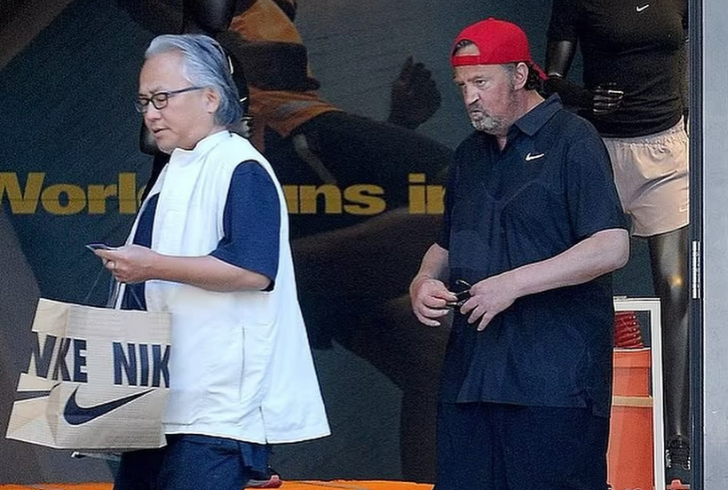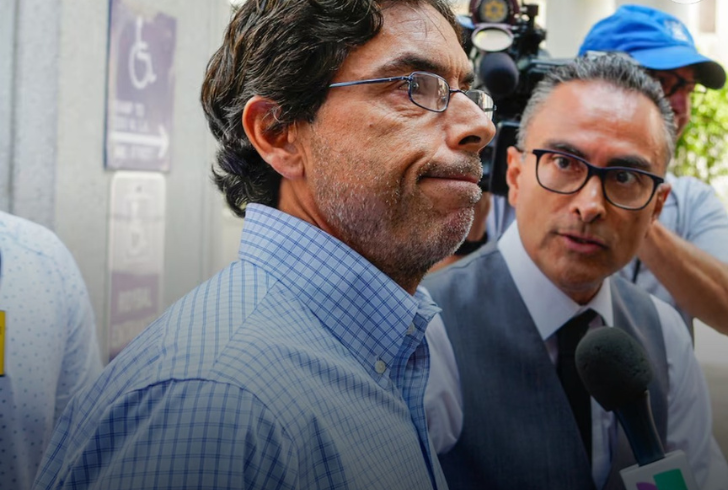Five People Charged in Matthew Perry’s Death – Full Details
The death of Matthew Perry on October 23, 2023, shocked fans worldwide, sparking an investigation that revealed a complex network of individuals involved in providing the actor with ketamine.
Federal authorities charged five people, all of whom have now agreed to plead guilty. Their roles ranged from supplying the drug to administering it, and each faced serious legal consequences.
Here’s a detailed look at the defendants and their connection to Perry’s tragic death.
The Dealer: Jasveen Sangha
Jasveen Sangha, 42, admitted to supplying Matthew with the fatal dose of ketamine days before his death in October 2023. Known in certain circles as the “Ketamine Queen,” prosecutors said she spent years running a high-level drug operation from Los Angeles while projecting a glamorous, globe-trotting lifestyle online.
Investigators raided her San Fernando Valley apartment in March 2024, uncovering large quantities of drugs. By August of that year, she was indicted directly in connection with Perry’s death and has remained in custody since. Sangha faces up to 45 years in prison. Her attorneys maintain that she is accepting responsibility, though they dispute the nickname prosecutors have attached to her.
The Assistant: Kenneth Iwamasa

Instagram | truecrimesociety | Matthew Perry’s personal assistant, Kenneth Iwamasa, reportedly supplied the actor with ketamine.
At the heart of Perry’s final days was his live-in personal assistant, Kenneth Iwamasa. Court filings describe him as both caretaker and enabler, securing ketamine from other defendants and personally injecting the actor multiple times a day. It was Iwamasa who discovered Perry unresponsive in the hot tub of his Pacific Palisades home.
The 60-year-old admitted that he collaborated with co-defendants, including a physician who instructed him on how to give injections. He faces up to 15 years in prison when sentenced in November.
The Doctor: Salvador Plasencia
Dr. Salvador Plasencia, a Los Angeles-area physician, became a central figure in the prosecution. Known by patients as “Dr. P,” he sold vials of ketamine directly to Perry, even personally administering some doses despite dangerous reactions that left the actor struggling physically.
Plasencia, 43, graduated from UCLA’s medical school and had no prior disciplinary history before this case. Yet text messages revealed he dismissed Perry as a “moron” while profiting from the illegal sales. He remained free on bond while awaiting sentencing, where he could face up to 40 years. His lawyers have stated he plans to surrender his medical license and has expressed remorse for his decisions.
The Acquaintance: Erik Fleming
Erik Fleming, 55, reconnected with Perry through mutual contacts and quickly became a link between the actor and Sangha. Texts show him praising Sangha’s supply and arranging transactions. Prosecutors said he delivered at least 50 vials, including a batch four days before Perry’s death that cost the actor $6,000.
Fleming has admitted to his role and faces a sentence of up to 25 years later this year. His attorneys have declined public comment.
The Clinic Owner: Dr. Mark Chavez

Instagram | wfsbnews | Dr. Mark Chavez of San Diego was the source of some of the ketamine that reached Perry, prosecutors said.
The final defendant, Dr. Mark Chavez of San Diego, was the source behind some of the ketamine that filtered to Perry. Prosecutors said he obtained the drug under false pretenses from a distributor and passed it along to Plasencia, who then sold it.
Chavez, 55, surrendered his medical license and is set to be the first sentenced among the group. He faces a potential 10-year prison term. His lawyer said Chavez is deeply remorseful and has worked to take accountability.
The Legal Outcome and Impact
The coordinated guilty pleas of all five defendants bring the case closer to resolution. Each individual’s role in supplying or administering ketamine to Matthew Perry highlights a disturbing chain of responsibility that contributed to his death. Courts will now determine sentencing, which ranges from 10 to 45 years, reflecting the severity of the crimes.
The case has also sparked conversations about the risks of ketamine misuse, the responsibilities of medical professionals, and the influence of personal networks in substance abuse. As the legal process unfolds, it provides a stark reminder of the consequences of illegal drug distribution and the tragic outcomes it can produce.